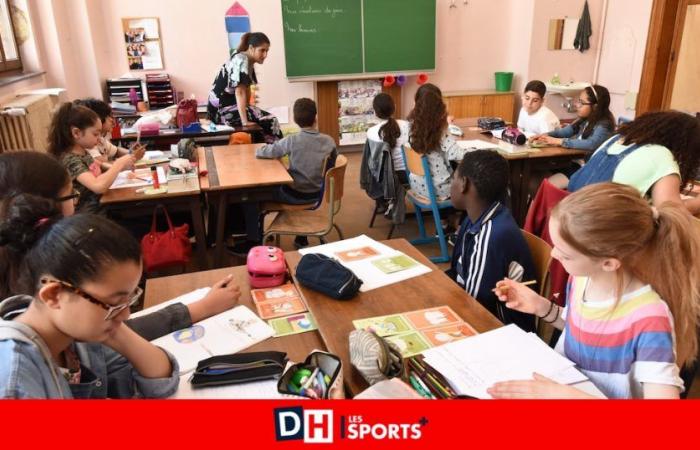Negotiations are well underway to form the next governments. This Friday, the presidents of the MR and the Engagés are meeting with education stakeholders as part of the training of future executives in the Walloon Region and the Wallonia-Brussels Federation.
The two parties in the majority agree on one observation: our education system is among the most expensive in OECD countries and perpetuates inequalities.We want a more efficient school”, summarizes Valérie Glatigny (MR), former Minister of Higher Education. While Les Engagés places the emphasis elsewhere. “The well-being of students and teams is a means of achieving learning and success”defends Marie-Martine Schyns.
School pace
This starts with lowering the age of compulsory schooling to 3 years old.”It can put everyone on an equal footing and allow children to be up to standard when they enter first grade.”believes Diana Nikolic, who was head of the MR group in the Wallonia-Brussels Federation.
The shortage of teachers is reaching new heights: “Finding a Dutch teacher has become almost impossible”
This will not happen all at once and without consultation with those on the ground, but the MR intends to reorganise the daily rhythm by extending the time spent at school.We want to integrate homework, cultural, sports and digital activities into school time. We recommend avoiding learning such as maths and science after lunchtime and favoring more entertaining activities and sports activities.”explains Diana Nikolic.
On the Committed side, we advocate the continuation of the Pact of Excellence by adjusting what needs to be adjusted. “It won’t produce its effects if there isn’t a teacher every class hour. We must stabilize and better support young teachers and better value seniority.”, points out Marie-Martine Schyns. As for well-being, this involves measures to combat harassment, the strengthening of PMS centers and support for teaching teams by reducing the administrative burden.
Pierre-Yves Jeholet wants an end to compulsory education from the age of 16: “Why force young people to stay in school if they don’t want to?”
The MR advocates more certification assessments. The first would take place in the 3rd year of primary school to ensure that all children know how to read, write and count. The CEB in the 6th year of primary school is maintained but with the success rate set at 60%.The idea is to detect gaps as early as possible. The evaluation is not a sanction but an opportunity to detect learning difficulties”, insists Valérie Glatigny. This additional test is not a priority at Les Engagés.






